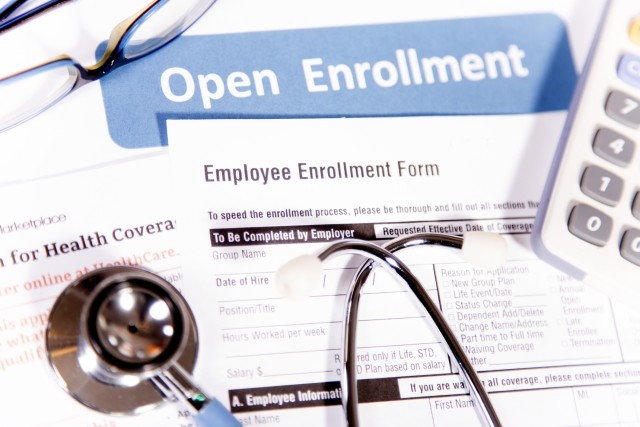Blog
Supreme Court Rules on Same-Sex Marriage & Employee Benefits
Last week the U.S. Supreme Court ruled in Obergefell v. Hodges that all states must permit same-sex marriages within their borders and must recognize same-sex marriages performed in other states. This ruling puts to rest some of the big questions and the confusion that remained after the Court’s ruling on same-sex marriage and DOMA in 2013. Many employers must now consider how this decision affects their benefit plans.
Last week the U.S. Supreme Court ruled in Obergefell v. Hodges that all states must permit same-sex marriages within their borders and must recognize same-sex marriages performed in other states. This ruling puts to rest some of the big questions and the confusion that remained after the Courts ruling on same-sex marriage and DOMA in 2013. Many employers must now consider how this decision affects their benefit plans.
Background
Heres the refresher. In 2013 we had U.S. v. Windsor, wherein the Supreme Court recognized same-sex marriage for purposes of federal law. The Courts ruling in Windsor meant that a same-sex marriage in a state that recognized same-sex marriages, say New York, was effective for purposes of federal income tax law, cafeteria plan participation, and spousal status under the FMLA.
Sounds pretty simple, right? Not so fast. What happens when our New York employee and his husband moved to work in the employers plant in Mississippi, a state that banned same-sex marriages? This is where it got interesting. Does the employees spouse participate in the health plan as a spouse? If yes, is there a tax exclusion under Mississippi tax law for the value of the coverage? How about federal law, given that the marriage is not valid in Mississippior is it? Is the employee entitled to FMLA leave to care for his ill spouse? The regulators ultimately resolved most of these issues, but a few questions remained.
Moving Forward
Most of these questions have been put to rest by the Supreme Courts decision last week. When all the dust has settled, the spouse in our example above will be able to participate in the employer health plan, there will be an income exclusion under state and federal tax laws, and yes, the employee will be able to take FMLA leave to care for his sick husband.
The trick here will be to navigate some of the detail around plan changes and compliance dates. Weve been through this before, so it shouldnt be too bad. We expect a lot of guidance from federal and state regulators in the very near
future. Employers eager to open their plans to same-sex spouses have little risk in moving forward. Those wanting a clearer picture of the details are probably safe to wait for weeks or a few months for guidance. Heres our list of things
to think about and look for in the near term.
More Guidance Anticipated
Timing & Guidance from State and Federal Regulators
Look to federal and local regulators to issue guidance on questions, many of which will be about effective dates. For example, will there be a deadline by which insured plans in states that prohibited same-sex marriage must open enrollment to same-sex spouses? And, when that enrollment is open, how do HIPAA Special Enrollment rules and cafeteria plan change-in-status rules work? Answering these and similar questions will require guidance from both state and federal regulators.
Timing from Insurers & Payroll Providers
Insurers in states that prohibited same-sex marriage are currently having conversations with state insurance regulators about effective date issues and other administrative details. Those insurers will be the real drivers on how and when things change for insured plans. Similarly, payroll providers are working through how and when to turn off imputed income for same-sex spouses who are covered under a spouses plan in a state that didnt recognize the marriage. Systems are likely to drive timing on much of this change.
Specific Benefits Issues
Insured VS. Self-Funded Health Plans
The headline in many publications is that insured plans in states prohibiting same-sex marriage must change their rules now while self-funded health plans may continue to exclude same-sex spouses. Our message is different. It might be technically true to say that self-funded plans have more leeway to exclude same-sex spouses from coverage. However, employers who choose to take this approach will be among the first defendants facing claims of discrimination following the Supreme Courts decision. Most employers with self-funded plans will be making changes soon, subject to announcements from regulators on timing around imputed income issues and change-in-status events. Employers wishing to continue to limit spousal benefits to only opposite-sex couples should seek the assistance of legal counsel.
Domestic Partner Benefits
According to data collected by the Bureau of Labor Statistics, in 2014 35% of all private sector workers had access to same-sex domestic partner benefits, and 30% of all private sector workers had access to opposite-sex domestic partner
benefits. We are hearing anecdotally that many employers are beginning to question whether they need to continue to offer domestic partner benefits, especially in light of increased health care availability on the exchanges. There are a few things to consider here. These include transition timing for new rules excluding domestic partners, looking at state or local laws that might require coverage for domestic partners, and considering whether a policy eliminating domestic
partner benefits might cause problems for employees who prefer not to have a public record of a same-sex marriage in the form of a marriage license.
General Administration & Discrimination Risks
Employers will want to consider how to gather information on same-sex marriages and how to offer enrollment and change-in-status events to those who are considered newly married. Approaches here will vary by state and by employer. On the legal front, take care in developing policies and processes to avoid employment discrimination. On the human resources front, know that some employees may be reluctant to report marriages even though they are now legal.
For more information, please contact your Woodruff-Sawyer representative at 415.391.2141.
For a PDF version of this alert, please click here.
Table of Contents








